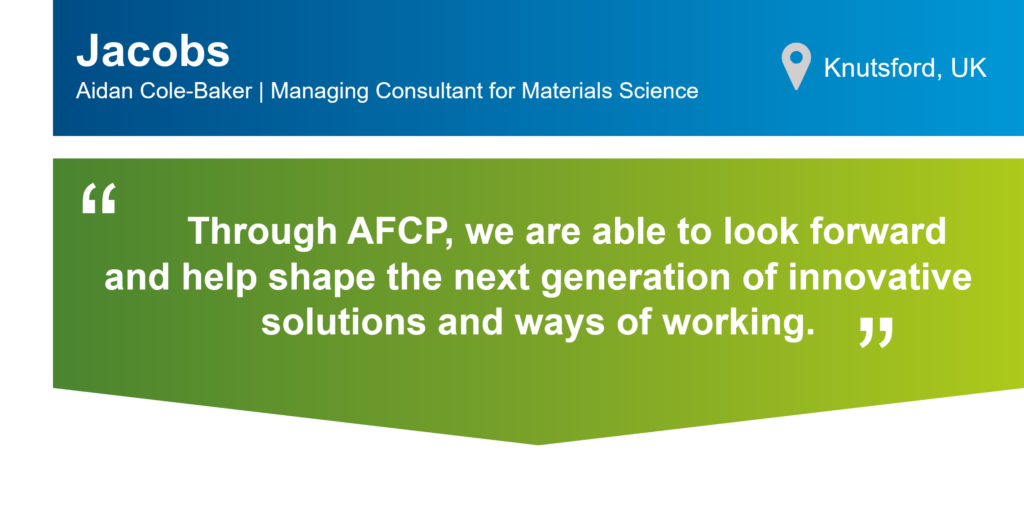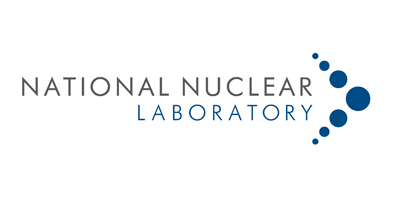Informing UK development through trusted expertise
ADVANCED TECHNOLOGY FUELS | ENGAGEMENT | NATIONAL NUCLEAR USER FACILITY | PEOPLE AND SKILLS | SUPPLY CHAIN AND ECONOMYAt Jacobs, AFCP is securing employee development while safeguarding the deployment of future reactors. Aidan Cole-Baker, Managing Consultant for Materials Science at Jacobs, shares how the programme is accelerating the organisation’s clean energy ambition.

Challenge
Securing a sustainable future together
Jacobs is committed to making a positive environmental, societal and economic difference for businesses, governments and communities. Across our business, we are continually challenging today to reinvent tomorrow. Together we are pushing the limits of what’s possible and creating new standards for a sustainable future as we take action on climate change. To do that we need to attract and retain the best talent across diverse skills and disciplines, including those with expertise in clean energy technologies.
Solution
Supporting operators and designers to develop innovative solutions
We provide support to nuclear reactor operators and designers. Our reactor core work includes providing and analysing test data or assessing safety cases to support continued safe operation of existing reactor fleets. Through AFCP, for example, we are able to look forward and help shape the next generation of innovative solutions and ways of working.
Impact
Applying independent expertise to industry
Our involvement in AFCP has enabled us to apply Independent Nuclear Assurance expertise to a new technology to understand any likely regulatory gaps. This enabled us to provide preliminary advice to reactor design organisations on the potential impact of accident tolerant fuel (ATF) cladding.
Additionally, AFCP enables us to apply our existing capabilities and facilities to a new technology area. To date, the programme has enabled us to advance our capability developed on existing fuel cladding to further developments and technology evolution.
AFCP has not only secured a route for employee training and development opportunities, but has allowed us to support a range of organisations across the programme’s clean energy network.
Beyond our direct involvement in AFCP, visibility of the wider programme has raised awareness of the capabilities of other organisations complementary to our own. Together, we are pushing the limits of what’s possible and creating new standards for a sustainable future as we take action on climate.
AFCP is part of the Department for Business, Energy and Industrial Strategy (BEIS) £505m Energy Innovation Programme.
